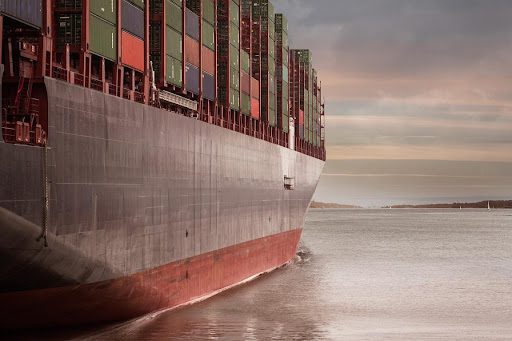Hiring the right sea freight forwarder can make or break your supply chain. Whether you’re moving goods across oceans once a year or every week, the forwarder you choose plays a major role in how smoothly things run.
Delays, extra fees, or poor communication? Those usually trace back to the wrong partner. Let’s break down the key things you need to look for before you commit.
Table of Contents
1. Experience in Sea Freight Logistics
You want someone who knows the ropes. Ocean freight isn’t just about loading containers on a ship. It involves schedules, weather issues, port congestion, and customs rules that vary by country. A forwarder with solid ocean freight forwarding experience knows how to handle these variables without panicking.
Start by asking how long they’ve been in the business. Their track record with different types of shipments can reveal a lot. If they’ve handled cargo similar to yours, that’s a green flag.
2. Global Network and Carrier Relationships
A reliable forwarder doesn’t operate in isolation. They build strong relationships with shipping lines, agents, and port handlers around the world, which leads to better rates and priority access when capacity is tight.
If you’re shipping to or from Southeast Asia, choosing a freight forwarder Singapore recognizes for its regional expertise can give you a competitive edge. These forwarders often work closely with local carriers and port authorities, helping to streamline customs procedures and reduce delays. Their logistics network should also support flexible shipping routes to avoid bottlenecks and late arrivals.
3. Licensing, Accreditation, and Compliance
Never assume a forwarder is fully licensed. Always check. They should have all required certifications and follow international regulations. Are they a member of the International Federation of Freight Forwarders Associations (FIATA) or the World Cargo Alliance (WCA)? Do they comply with Federal Maritime Commission (FMC) standards?
If they’re not licensed or insured, you could be held responsible for their mistakes. Also ask how they stay updated with changing customs laws, especially if your business involves multiple countries.
4. Range of Services Offered
Shipping is just one part of the process. Do they offer customs clearance? Inland transport? Warehousing? The more logistics services they can handle in-house, the fewer vendors you’ll need to coordinate. Look for end-to-end capabilities, including reliable last-mile delivery. This reduces hassle, cuts down on handoffs, and lowers the risk of something slipping through the cracks.
Whether you’re shipping a full-container load or handling a less-than-container load (LCL), flexibility matters. If you regularly book LCL shipments, make sure they offer smart consolidation and planning. Their ability to adapt to your needs can directly affect cost, timing, and overall efficiency.
5. Track Record With Customs and Documentation
Shipping delays often start with bad paperwork. The best forwarders know customs forms, bills of lading, certificates of origin, and all the rest like the back of their hand. They also know how to spot mistakes before they turn into problems.
Ask how they handle documentation. Do they have checks in place? How do they manage compliance in high-risk regions? Their answers should give you peace of mind. Many also offer in-house customs brokerage, which can speed things up significantly.
6. Transparent Pricing and Hidden Fees
Watch out for vague pricing. A good forwarder gives you a clear quote with no hidden charges. They should explain what’s included and what’s not. Ask for a breakdown such as freight charges, documentation, port fees, customs duties, and any extras. If they dance around the numbers, that’s a red flag.
Clarity here saves you from unpleasant surprises later. Don’t forget to ask whether cargo insurance is included and if any additional insurance coverage is available for high-value or sensitive goods. Knowing exactly what you’re paying for helps you manage your finances and avoid unnecessary setbacks.
7. Technology and Shipment Tracking Tools
You shouldn’t have to chase down updates. A modern forwarder uses digital platforms, often powered by AI, that let you track your cargo as it moves. You need visibility to manage your operations confidently.

Can you log in and check your container’s location? Do they send automatic status updates? If their tracking system delivers real time information and proactive alerts, you’ll stay ahead of issues before they escalate.
8. Customer Support and Communication
Things go wrong. When they do, you need someone who picks up the phone. Make sure the forwarder assigns a dedicated contact person who understands your shipments and priorities.
Before signing anything, ask how quickly they respond to emails. It also helps to know whether they offer support outside standard business hours, especially if you ship internationally. Fast, clear communication can save you thousands.
9. Problem-Solving and Crisis Management Skills
Sea freight isn’t always predictable. Storms, strikes, and equipment breakdowns happen. The best forwarders have backup plans. They don’t just throw up their hands and blame others.
Ask about past challenges they’ve faced. How did they fix them? A seasoned freight expert will have strategies in place for rerouting, expediting, or handling alternative options when the unexpected strikes.
10. Reputation and Client Feedback
Before you sign anything, do your homework. Read reviews. Look for client testimonials on their site and on third-party platforms. These can give you a general sense of their reliability and service quality.
You can also ask if they have any clients who are willing to act as references. Some forwarders may connect you with past or current clients who’ve agreed to share their experience. A quick conversation can give you insights that go beyond a polished sales pitch.
Final Thoughts
A dependable sea freight forwarder does more than move cargo. They support your business goals and help keep everything on track. The right partner can reduce stress and improve your day-to-day operations.
Be thoughtful in your search. Ask detailed questions and weigh your options carefully. When you choose well, you set the stage for smoother shipping and consistent results.

